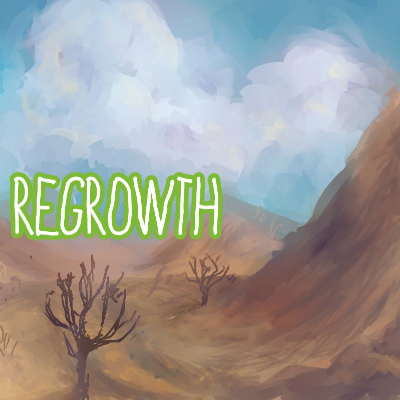Lmfao are you serious? Supporting renewables makes me a shill for fossil fuel companies? You’re stretching so far you’re going to split.
Blake [he/him]
- 11 Posts
- 23 Comments
When it comes to generating electricity, nuclear is hugely more expensive than renewables. Every 1000Wh of nuclear power could be 2000-3000 Wh solar or wind.
If you’ve been told “it’s not possible to have all power from renewable sources”, you have been a victim of disinformation from the fossil fuel industry. The majority of studies show that a global transition to 100% renewable energy across all sectors – power, heat, transport and industry – is feasible and economically viable.
This is all with current, modern day technology, not with some far-off dream or potential future tech such as nuclear fusion, thorium reactors or breeder reactors.
Compared to nuclear, renewables are:
- Cheaper
- As clean or cleaner, in terms of emissions
- Faster to provision
- Less environmentally damaging
- Not reliant on continuous consumption of fuel
- Decentralised
- Much, much safer
- Much easier to maintain
- More reliable
- Much more capable of being scaled down on demand to meet changes in energy demands
Nuclear power has promise as a future technology. But at present, while I’m all in favour of keeping the ones we have until the end of their useful life, building new nuclear power stations is a massive waste of money, resources, effort and political capital.
Nuclear energy should be funded only to conduct new research into potential future improvements and to construct experimental power stations. Any money that would be spent on building nuclear power plants should be spent on renewables instead.
Frequently asked questions:
- But it’s not always sunny or windy, how can we deal with that?
While a given spot in your country is going to have periods where it’s not sunny or rainy, with a mixture of energy distribution (modern interconnectors can transmit 800kV or more over 800km or more with less than 3% loss) non-electrical storage such as pumped storage, and diversified renewable sources, this problem is completely mitigated - we can generate wind, solar or hydro power over 2,000km away from where it is consumed for cheaper than we could generate nuclear electricity 20km away.
- Don’t renewables take up too much space?
The United States has enough land paved over for parking spaces to have 8 spaces per car - 5% of the land. If just 10% of that space was used to generate solar electricity - a mere 0.5% - that would generate enough solar power to provide electricity to the entire country. By comparison, around 50% of the land is agricultural. The amount of land used by renewable sources is not a real problem, it’s an argument used by the very wealthy pro-nuclear lobby to justify the huge amounts of funding that they currently receive.
- Isn’t Nuclear power cleaner than renewables?
No, they’re pretty comparable in terms of emissions, and renewables are cleaner in terms of other environmental impacts. You can look up total lifetime emissions for nuclear vs. renewables - this is the aggregated and equalised emissions caused per kWh for each energy source. It takes into account the energy used to extract raw materials, build the power plant, operate the plant, maintenance, the fuels needed to sustain it, the transport needed to service it, and so on. These numbers generally show that renewables tend to be as clean or cleaner in terms of total lifetime emissions, and in addition, since nuclear relies on fuel extraction (mining) and has lots of issues regarding waste, renewables is overall cleaner than nuclear.
- We need a baseline load, though, and that can only be nuclear or fossil fuels.
Not according to industry experts - the majority of studies show that a 100% renewable source of energy across all industries for all needs - electricity, heating, transport, and industry - is completely possible with current technology and is economically viable. If you disagree, don’t argue with me, take it up with the IEC. Here’s a Wikipedia article that you can use as a baseline for more information: https://en.m.wikipedia.org/wiki/100%25_renewable_energy

 0·1 year ago
0·1 year agoHijacking your thread to advocate for my lazy ideology. Disclaimer I have pretty severe ADHD so this might be extreme for most people but for me this makes life liveable.
Forget trying to make things look super tidy and neat like in an IKEA commercial. Make your living space functional, comfortable and easy to maintain. Reduce the amount of physical, mental and emotional effort required to maintain your environment. For example, for laundry:
- Don’t iron anything unless you really need/want to. (Job interview, going on a date, appearing in court, etc.)
- Anywhere you’re liable to undress, have a basket for dirty clothes. It should be open-topped (no lid!) and mobile, like a laundry basket, so when you need to do a load of laundry, you can pick up and use the whole basket - functioning both as the hamper and the basket. Bedroom and bathroom are the usual places for this! You want the act of tossing dirty clothes in the laundry to be just as easy as tossing it on the floor.
- There’s no such thing as odd socks. They’re called mix ‘n’ match socks now. Like Mashems!
- No neatly folded clothes or hangers or anything like that, except for very special things such as in point 1 - everything just gets dumped into big drawers based on category. I have little fabric boxes that fit into a kallax to keep this relatively neat looking but super easy.
- If something can’t survive going in the washing machine mixed load cycle and the tumble dryer daily load, it is not welcome in my life. (There’s a similar rule about the dishwasher!)
You get the idea. Embrace your laziness, don’t bother yourself with half a second what people might think of how you live. This is surprisingly neat and orderly and takes almost no effort to maintain. If you keep finding your basket is misplaced, buy another basket and keep it in two places. Stop fighting the current and go with your flow. Accept who you are, even if you’re a lazy bitch like me!

 1·1 year ago
1·1 year agoIf you’re still there, organise your workplace. Unionise. Join the IWW - they can help you to accomplish this.

 1·1 year ago
1·1 year agoWas chatting with a young (17-ish) atheist guy recently who misremembered this as “isn’t there a bit in the bible where Christian licks a prostitute’s feet?” which truly left me with so many things I wanted to say that I could bareky say anything without laughing so much, but I managed to get out “did you think Jesus was called Christian??”

 0·1 year ago
0·1 year agoOkay so imagine that you’re on Elon Musk’s private jet, 36000 feet in the air, and he asks you to strip down into a thong and perform an erotic dance for him. It’s his property, he has the right to tell you what to wear. If you don’t like it, you’re free to leave; of course. Do you think that’s acceptable?

 0·1 year ago
0·1 year agoSo that’s a no, then - you don’t have a right for something if you have to leave the system to exercise the right. For example you wouldn’t have the right of freedom of speech if I said “yeah you can say whatever you want if you leave the country!”
So, why do companies deserve more rights than people?

 0·1 year ago
0·1 year agoDo workers have the right to refuse to be associated with something that the company want them to display on their dress code? For example, a corporate sponsor? If no, why do companies deserve more rights than people?

 0·1 year ago
0·1 year agosingle-handedly destroying globalism
Oh no! Anyways…

 0·1 year ago
0·1 year agoWhen it comes to generating electricity, nuclear is hugely more expensive than renewables. Every 1000Wh of nuclear power could be 2000-3000 Wh solar or wind.
If you’ve been told “it’s not possible to have all power from renewable sources”, you have been a victim of disinformation from the fossil fuel industry. The majority of studies show that a global transition to 100% renewable energy across all sectors – power, heat, transport and industry – is feasible and economically viable.
This is all with current, modern day technology, not with some far-off dream or potential future tech such as nuclear fusion, thorium reactors or breeder reactors.
Compared to nuclear, renewables are:
- Cheaper
- Lower emissions
- Faster to provision
- Less environmentally damaging
- Not reliant on continuous consumption of fuel
- Decentralised
- Much, much safer
- Much easier to maintain
- More reliable
- Much more capable of being scaled down on demand to meet changes in energy demands
Nuclear power has promise as a future technology. But at present, while I’m all in favour of keeping the ones we have until the end of their useful life, building new nuclear power stations is a massive waste of money, resources, effort and political capital.
Nuclear energy should be funded only to conduct new research into potential future improvements and to construct experimental power stations. Any money that would be spent on building nuclear power plants should be spent on renewables instead.
Frequently asked questions:
- But it’s not always sunny or windy, how can we deal with that?
While a given spot in your country is going to have periods where it’s not sunny or rainy, with a mixture of energy distribution (modern interconnectors can transmit 800kV or more over 800km or more with less than 3% loss) non-electrical storage such as pumped storage, and diversified renewable sources, this problem is completely mitigated - we can generate wind, solar or hydro power over 2,000km away from where it is consumed for cheaper than we could generate nuclear electricity 20km away.
- Don’t renewables take up too much space?
The United States has enough land paved over for parking spaces to have 8 spaces per car - 5% of the land. If just 10% of that space was used to generate solar electricity - a mere 0.5% - that would generate enough solar power to provide electricity to the entire country. By comparison, around 50% of the land is agricultural. The amount of land used by renewable sources is not a real problem, it’s an argument used by the very wealthy pro-nuclear lobby to justify the huge amounts of funding that they currently receive.
- Isn’t Nuclear power cleaner than renewables?
No, it’s dirtier. You can look up total lifetime emissions for nuclear vs. renewables - this is the aggregated and equalised environmental harm caused per kWh for each energy source. It takes into account the energy used to extract raw materials, build the power plant, operate the plant, maintenance, the fuels needed to sustain it, the transport needed to service it, and so on. These numbers always show nuclear as more environmentally harmful than renewables.
- We need a baseline load, though, and that can only be nuclear or fossil fuels.
Not according to industry experts - the majority of studies show that a 100% renewable source of energy across all industries for all needs - electricity, heating, transport, and industry - is completely possible with current technology and is economically viable. If you disagree, don’t argue with me, take it up with the IEC. Here’s a Wikipedia article that you can use as a baseline for more information: https://en.m.wikipedia.org/wiki/100%25_renewable_energy

 0·1 year ago
0·1 year agoA threat to CCP interests it may be, but that wouldn’t justify a military invasion that would kill a shitload of people, would it? It would have to be sinking food or medicine shipments with coastal guns or something equally abhorrent to justify such an act. And again, that would absolutely be valid justification for an invasion, so they wouldn’t do it. How can you claim to be one of the good guys when you justify a military invasion and the deaths of thousands of innocents as “just a fact of how things will turn out”.

 0·1 year ago
0·1 year agoOh, my apologies, you’re quite right, I initially misread your message, sorry about that - thank you for your answer and I appreciate your consistency. I appreciate you arguing in good faith and I understand your position.
I disagree with you, I think you have an altogether a bit too optimistic perspective of the CCP, but I understand why you would be inclined to feel that way.
My point is, I think it’s pretty clear that Taiwan stands no chance whatsoever in a hot conflict with the Red Army - I hope that’s something that we agree on. I am sure that Taiwan is also very aware of that fact.
So what threat is posed by providing conventional munitions to Taiwan? If they were used in aggression, they would guarantee their own demise. Do you really think that they would be so desperate to strike a meaningless blow against the CCP that they would trade everything to accomplish that?
If so, why would these weapons change anything? They could have sacrificed everything for a single meaningless act of violence long before now. It’s not like Taiwan is being supplied with nuclear weapons, is it?
Providing Taiwan with conventional weaponry only accomplishes one thing: making an invasion of Taiwan less compelling.

 0·1 year ago
0·1 year agoYou’re not engaging with my argument because you know fine well what the outcome would be. I think we’re done here.

 0·1 year ago
0·1 year agoAssume that it wouldn’t, though - I could just as easily say “with the right incentives, the United States could elect a communist president and transition to a people’s republic”, so let’s take them at their word that never means never and go from there, shall we?

 0·1 year ago
0·1 year agoIf the Taiwanese state would never capitulate and reintegrate peacefully with the CCP state, which is their claim, then wouldn’t that make an invasion of Taiwan inevitable, regardless of weapons?

 0·1 year ago
0·1 year agoHere’s a question for you: would you support a Chinese military invasion of Taiwan?

 0·1 year ago
0·1 year agoHoly shit, you’re telling me that both sides in a civil war think they should have full control of the country they’re in a civil war over? Hang on I need to sit fucking down my head is spinning

 0·1 year ago
0·1 year agoClearly everyone should just let China do whatever they want to avoid war, if we appease them by expanding their territorial claims and avoiding conflict then surely everything will be fine. The politics of appeasement has historically been very successful.
Edit: Stop replying please, I don’t want to waste any more time arguing with y’all.

 0·1 year ago
0·1 year agoDon’t import Reddit’s extremely ignorant takes on nuclear power here, please. Nuclear power is a huge waste of money.
If you’re about to angrily downvote me (or you already did), or write an angry reply, please read the rest of my comment before you do. This is not my individual opinion, this is the scientific consensus on the issue.
When it comes to generating electricity, nuclear is hugely more expensive than renewables. Every 1000Wh of nuclear power could be 2000-3000 Wh solar or wind.
If you’re about to lecture about “it’s not possible to have all power from renewable sources”, save your keystrokes - the majority of studies show that a global transition to 100% renewable energy across all sectors – power, heat, transport and industry – is feasible and economically viable. Again, this isn’t my opinion, you can look it up and find a dozen sources to back up what I am writing here.
This is all with current, modern day technology, not with some far-off dream of thorium fusion breeding or whatever other potential future tech someone will probably comment about without reading this paragraph.
Again, compared to nuclear, renewables are:
- Cheaper
- Lower emissions
- Faster to provision
- Less environmentally damaging
- Not reliant on continuous consumption of fuel
- Decentralised
- Much, much safer
- Much easier to maintain
- More reliable
- Much more responsive to changes in energy demands
Nuclear power has promise as a future technology. It is 100% worth researching for future breakthroughs. But at present it is a massive waste of money, resources, effort and political capital.
Nuclear energy should be funded only to conduct new research into potential future improvements and to construct experimental power stations. Any money that would be spent on nuclear power should be spent on renewables instead.






This is what she’s angry about
Get a fucking grip, Ayesha. This is like being offended by Tesco selling tampons or toothbrushes or something.
By definition, if someone knows what these things are, they aren’t “innocent”. It’s not like they scream sex toy. They even look like they could be vapes or something.